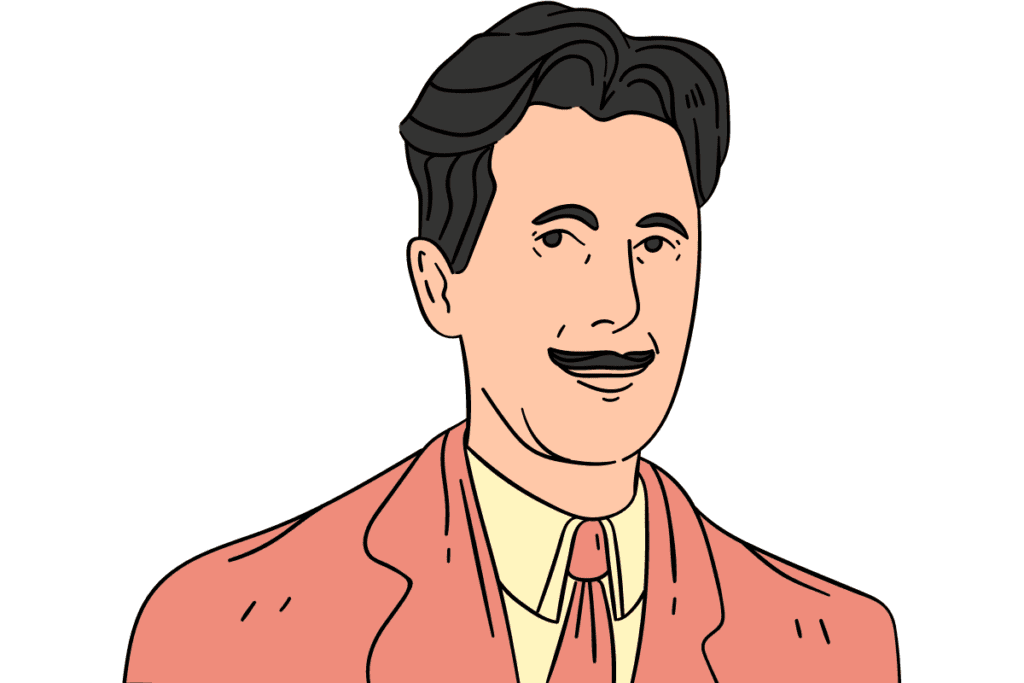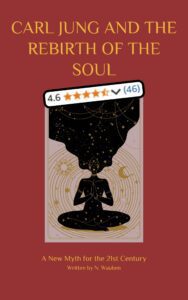George Orwell was an English writer who wrote some extremely influential books, most notably, 1984 and Animal Farm, books which are still more than relevant today. Throughout 1984, George Orwell warned us of the risks of totalitarian governments, whereas, throughout Animal Farm, Orwell warned us of the risks of socialist ideologies, which, while advocating for equality, run the risk of developing into totalitarian regimes as well. This article begins with a summary of Animal Farm, followed by an analysis of the meaning of George Orwell’s Animal Farm.
Animal Farm Summary
Animal Farm depicts the story of the animals living on Manor Farm, who decide to rebel against the authoritarian and abusive farmer Mr. Jones. The animals decide to take over the farm from Mr. Jones and govern themselves according to certain rules set up by themselves.
The mastermind behind the revolution is an old boar called Old Major, Old Major convinces the animals to revolt by arguing that their lives are characterized by unnecessary hard labour and misery: “The life of an animal is misery and slavery: that is the plain truth.” (p.4) According to Old Major, this is not a necessary state of being for the animals, since their farm is capable of producing enough food for all the animals, without having to abuse them. According to Old Major, all the products created through the animals’ labour are stolen by them from greedy humans: “There, comrades, is the answer to all our problems. It is summed up in a single word-Man.” (p.4)
Old Major argues that Man is the only real enemy, and if they could only remove man from the equation, then the animals could live a happy life. Man themselves do not add any value according to Old Major and therefore, the animals can easily do without their unproductive but abusive masters. As a result, rebellion is the answer according to Old Major: “Only get rid of Man, and the produce of our labour would be our own […] That is my message to you, comrades: Rebellion!” (p.5)
Several days after calling for rebellion, Old Major passed away. The animals, however, were sufficiently motivated by the words of Old Major to follow up on his call for rebellion. The animals prepared for their revolt and started to organize themselves. The pigs on the farm became the organizers of the rebellion, since they were considered to be the most clever. Two pigs in particular, Snowball and Napoleon, became important for the rebellion, since they had the best ideas.
The rebellion was carried out surprisingly easy by the animals and Mr. Jones was exiled from Manor farm. The animals changed the name of the farm into Animal farm and wrote the following seven commandments down on a wall in the barn:
- Whatever goes upon two legs is an enemy.
- Whatever goes upon four legs, or has wings, is a friend.
- No animal shall wear clothes.
- No animal shall sleep in a bed.
- No animal shall drink alcohol.
- No animal shall kill any other animal.
- All animals are equal.
Although many animals could not understand all of these commandments, the farm was being run surprisingly effective and the envious humans living in the vicinity of the farm looked on with jealousy and hatred. Several attempts made by the humans to regain control of the farm were successfully prevented by the animals.
At the same time, however, it became clear that the pigs, through their brain power, became the most dominant animals. The pigs reserved some types of products, such as milks and apples, for themselves, and argued that this was necessary for their brains. According to the pigs, if they could not keep their brains functioning, Mr. Jones might be able to return. With this threat of the return of Mr. Jones, the other animals decided to accept these privileges for the pigs.
However, since two captains on a ship is often a bad idea, Napoleon and Snowball were in constant conflict and opposed each other’s ideas constantly. Eventually the situation got out of hand and Napoleon succeeded in his secret plan to get rid of Snowball with a gang of dogs which Napoleon had been raising in secret.
As a result, Napoleon became the sole leader of Animal Farm. Napoleon’s reign quickly deteriorated into a totalitarian regime. Napoleon managed to silence any opposition by threatening the other animals with his vicious dogs. At the same time, Napoleon warned the other animals that, if they did not do as he told them, Mr. Jones would inevitably return. Moreover, Napoleon started to blame everything that went wrong not on his own bad leadership, but on the vengeful actions of Snowball who, according to Napoleon, was a secret spy of Mr. Jones all along and was doing whatever was in his power to sabotage Animal Farm.
Some of the smarter animals began to suspect that Napoleon was not ruling in accordance with the Seven Commandments which were written down in the barn. However, as soon as they became suspicious and want to find out whether their suspicion was valid, the animals discovered that the Seven Commandments written on the wall were not what they expected them to be. For instance, where they thought was written; ‘No animal shall sleep in a bed’, was now written, ‘No animal shall sleep in a bed with sheets.’
In this manner Snowball changed almost all commandments, including the last one; ‘all animals are equal’ was replaced by ‘all animals are equal, but some animals are more equal than others’. The pigs even started to walk on two legs, prompting Napoleon to change the maxim ‘four legs good, two legs bad’, into ‘four legs good, two legs better’.
The other animals could not do much about these developments since their memory of the original ideas behind the revolution failed them. At the same time, most believed in the propaganda spread by Napoleon and his friends, whereas those who did not believe in Napoleon’s propaganda, still figured Napoleon was probably better than Mr. Jones, and surely no one wanted the return of Mr. Jones. Eventually, however, it was hard to tell the difference between pig and man: “The creatures outside looked from pig to man, and from man to pig, and from pig to man again; but already it was impossible to say which was which.”

Analysis
By reading this summary of Animal Farm it might already become evident that the story of Animal Farm is based on a real-life historical event; the Russian revolution and the subsequent loss of the original revolutionary message. Some of the animals are even based on figures of the Russian revolution. For example, Old Major, who spread the original idea of rebellion but quickly passed away, is based on Lenin, whereas Napoleon, who slowly develops into a tyrannical leader and changed the original message behind the revolution, is based on Stalin.
At the same time, man, can be compared to the bourgeois who are accused of creating all kinds of hardships for the animals, who can, in turn, be compared to the proletariat. Mr. Jones can be compared to Russian Tsar Nicholas II, whose reign ended with the Russian revolution.
George Orwell’s animal farm can be seen as a warning for what can go wrong with (socialist) revolutions preaching for equality. Although the revolution may be justified, as is the case with animal farm, eventually, perhaps due to human nature, or in the case of animal farm ‘pig nature’, someone wants to be in power. These interests of the new ruling elite (Stalin & Napoleon the pig) will then become more important, and the original message of the revolution will get lost in this power struggle. The other people will not be able to do much about it, since the new elite will be able to use force, propaganda, lies and threats in order to remain in power. Moreover, the new elite might argue that they have to take certain actions in order to save the population from a return to the situation prior to the revolution. With the Russian revolution this would mean a return to the rule of the Tzar, whereas, on animal farm, this would mean a return to the rule of Mr. Jones.
I believe that Friedrich Nietzsche can help us explain why such a development often occurs after a (socialist) revolution aimed at increasing equality has occurred. According to Nietzsche, it is hard to discern real interest in equality or justice, for instance, from interest in power. In his book Thus Spoke Zarathustra Nietzsche argued that certain individuals who are preaching moral values, such as equality, are doing so with hidden motives. Nietzsche argued that they often do not preach such values out of love for mankind, instead, according to Nietzsche, they are often motived by revenge or jealousy. As such, Nietzsche observed that they tend to use the term ‘justice’ as a means to acquire power. Nietzsche called these people ‘Tarantulas’: “Thus do I speak unto you in parable, ye who make the soul giddy, ye preachers of equality! Tarantulas are ye unto me, and secretly revengeful ones!” (p.97)
Therefore, Nietzsche argued that these tarantulas misuse the idea of equality as a reason to attack those in power: “’Vengeance will we use, and insult, against all who are not like us’ – thus do the tarantula-hearts pledge themselves. ‘And “Will to Equality” – that itself shall henceforth be the name of virtue; and against all that hath power will we raise and outcry!’” (ibid) However, Nietzsche observed that, as soon as the tarantulas become powerful themselves, they will quickly dismiss the values they had been preaching upon till then: “And when they call themselves ‘the good and just’, forget not that for them to be Pharisees, nothing is lacking but – power!” (p.98)
This is also what we can clearly observe in the case of the Russian Revolution or at Animal Farm. In both instances, although the initial rebellion appears to be motivated by the ‘right’ reasons, certain forces within the rebellion quickly come to dominate the rebellion (Stalin & Napoleon). Eventually, as we can observed from the summary of Animal Farm, these forces start to act in opposition to the original message and the situation, in terms of inequality, for instance, becomes even worse than before.

